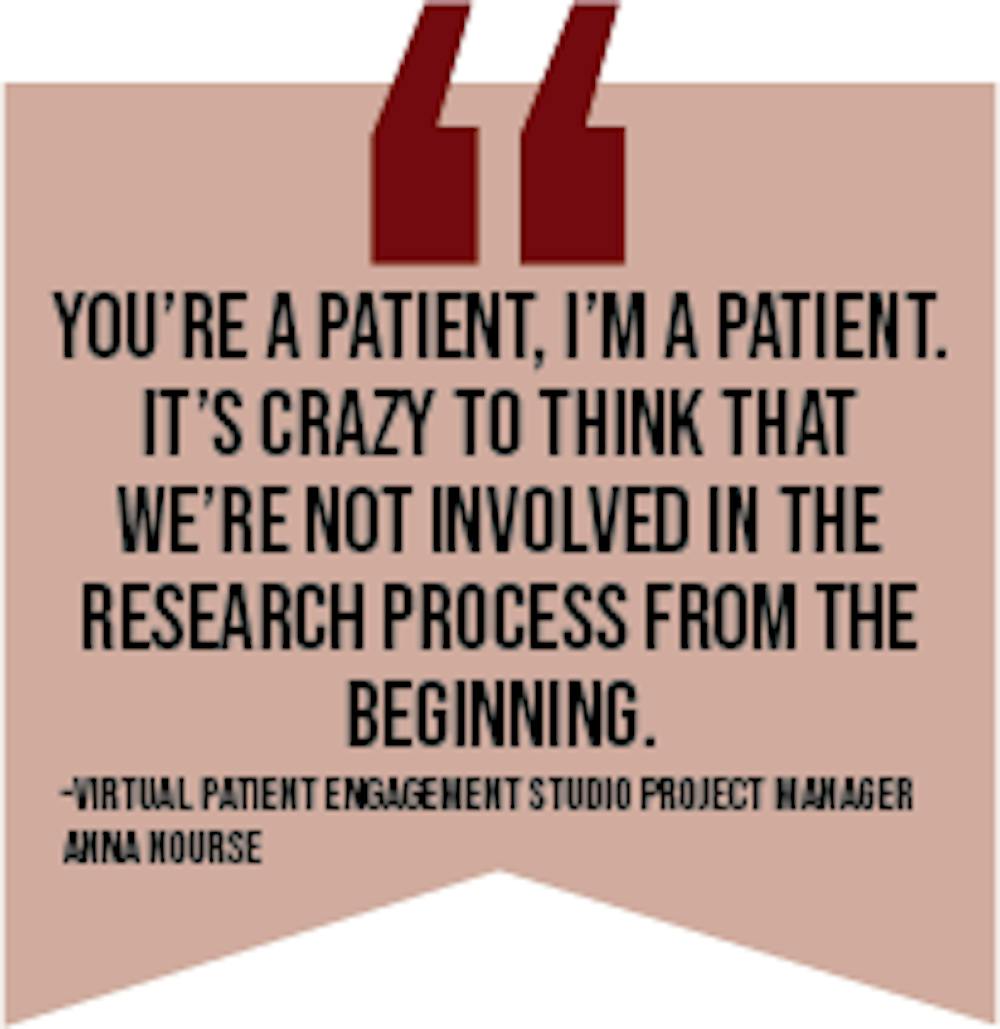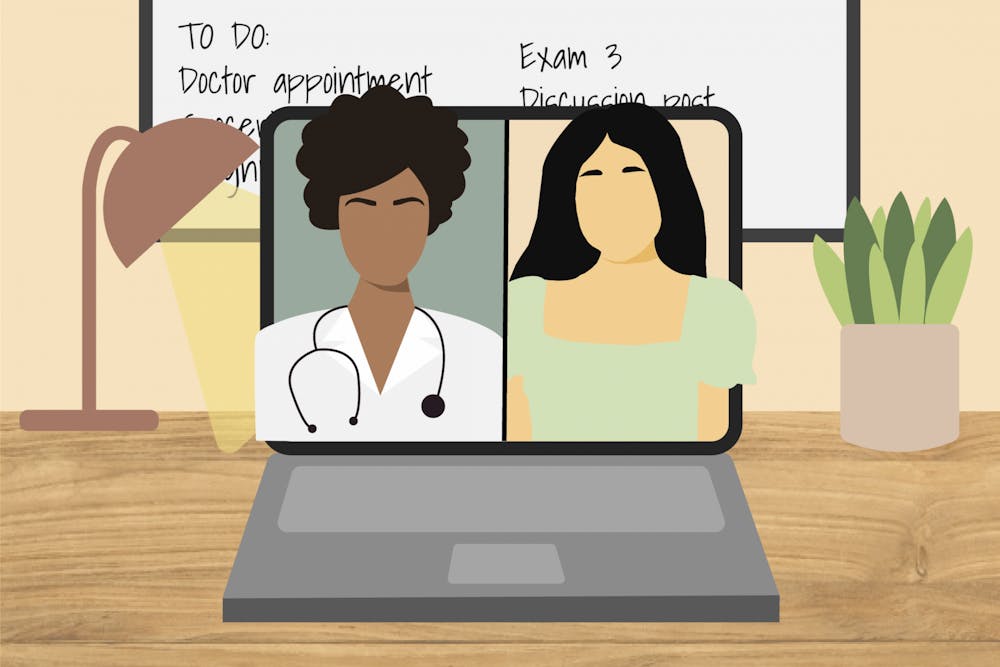Nabil Natafgi and Ann Blair Kennedy are utilizing their online Virtual Patient (VIP) Engagement Studio to reach real-life patients with specific diseases and immerse them in the research process from the beginning.
Natafgi, an assistant professor in the Arnold School of Public Health, and Kennedy, a clinical assistant professor at the USC School of Medicine in Greenville, lead the project with help from project manager Anna Nourse. Nourse said diversity is a goal of the current study, which focuses on diabetes.
“We were trying to get people who traditionally don’t participate in research. So, trying to expand participation and engagement to more diverse patients," Nourse said. "Whether that is people from rural areas in South Carolina, maybe Latinos or African Americans."
Natafgi said the group chose to focus on diabetes due to its prevalence in South Carolina.
“[South Carolina] ranks the fifth [state] in the U.S. in terms of prevalence, and there’s a lot of geographic and racial disparities in terms of mortality and other factors,” Natafgi said.
This is the first time patients are meeting and being trained fully online. Natafgi and Kennedy said they were interested in seeing what components of the patient engagement process could be done virtually to reach the populations that are often left out of medical research. Natafgi said the virtual component was planned in advance of the coronavirus pandemic and was set to be in a hybrid format. The team building portions were planned to be in-person but are now virtual.
“At the beginning, we were having trouble getting the word out, but, just over time, we got some really good luck and our word slowly got trickled out, and I was really pleased with 46 people applying to be a part of it," Nourse said.
Patient expert Kenneth E. Baxter Sr. said he discovered the Engagement Lab at a health fair put on by Prisma Health. He was recruited two to three weeks later, after initially talking to the first doctors and researchers.
“If I hadn't have went to that health fair and asked that question, who knows what could have happened. I could be diabetic now, probably, and not just prediabetic,” Baxter said.
The participant pool has now been expanded to include patients from Georgia and North Carolina, a representation of the extensive community the project is creating.
Natafgi said the project has three main objectives: create a network of VIP experts, train them in answering questions and providing information to researchers, and evaluate the process and help diabetic researchers direct their research on the most productive path.
“We're kind of engaging patients and the research that we do in a way that is different than being just participants or subjects of research, more as partners in the research. So, they would help you develop the questions, questions that are relevant to them rather than relevant to policymakers, for example, or relevant to the researchers themselves,” Natafgi said.
Before finding the Engagement Studio, Baxter said he did not know what questions to ask his doctor. He did not know he was prediabetic until learning to ask for the test at the health fair and learning what to ask and how to approach doctors.
"That's when I started working with it, and I realized it is very important that doctors and patients know how to talk to each other and patients know what questions to ask their doctor and how to ask them and don’t have a fear of asking their doctors questions and questioning their doctors," Baxter said.
Funded by the Patient-Centered Outcomes Research Institute, Natafgi and Kennedy aim to close the gap between researchers and the patients.
“If we are going to do research on any particular population or disease, and we as researchers do not have those conditions or are part of that population, I come to the place, where I'm not quite fully into it. It's almost unethical,” Kennedy said.
Kennedy said it's important to remember the line “never about us without us” when conducting any type of research. Papers and reports often published by researchers can be hard to understand to those with the conditions being studied. Kennedy also said patients might not get the results back from their studies unless they have a background in research or the relevant science.

“You’re a patient, I’m a patient. It’s crazy to think that we're not involved in the research process from the beginning,” Nourse said.
As someone who had experienced uncertainty when talking to doctors and is now a participant in the Engagement Studio, Baxter said he has had a first-hand look at how important bridging the gap between doctors and patients truly is.
"I am hoping that the studio itself, with the people, we can be a voice for all the patients out there that don’t have a voice," Baxter said.

